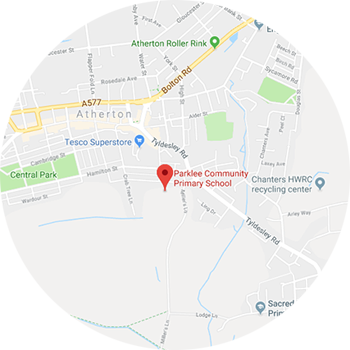Science
At Parklee, we want our children to be naturally curious about the world around them and how things work. Our curriculum has been developed to ensure full coverage of the National Curriculum and to foster a sense of wonder about natural occurrences. We have designed our Science Curriculum to ensure it is fully inclusive to every child. Our aims are to provide a broad, balanced and differentiated curriculum; to ensure progressive development of scientific concepts, knowledge and skills; and for the children to develop a love for Science.
Intent
It is our intent to give all children a strong understanding of the world around them whilst equipping them with the skills and knowledge to help them think scientifically. We encourage children to be inquisitive and we strive to foster a healthy curiosity about our universe, whilst ensuring children gain an understanding of scientific processes. We strive to ensure children are equipped with an understanding of the use and implications of Science, today and for the future. We aim to equip pupils with the skills to work scientifically, asking and answering their own questions through using a range different enquiry types. From Early Years to Year 6, our pupils will build up a knowledge, through revisiting key areas and building upon previous learning- embedding procedural knowledge into the long-term memory. Our aim for every child is to leave with a strong core of scientific knowledge, learnt and secured through a range of different experiences. Each unit will be explored in an investigative approach, and the knowledge developed appropriately as they move through the school (refer to Science progression documents). Our Science covers the main principles of biology, chemistry and physics through a variety of engaging units and supported by the comprehensive Developing Experts Science scheme.
Implementation
In ensuring high standards of teaching and learning in Science, we implement a curriculum that is progressive throughout the whole school. Science is taught regularly, focusing on knowledge and skills stated in the National Curriculum. All children will be taught how to make predictions, observe experiments, record results and create conclusions in a progressive manner as they move through our school. This is further enhanced through opportunities for learning outside the classroom and educational trips to places such as Chester Zoo. We also have special assemblies from science experts including Mad Science and The Royal Institute of Science. Scientific vocabulary is introduced and revisited regularly to develop language acquisition, embedding as the unit progresses and children move through school (refer to Science vocabulary document). Scientific knowledge and enquiry skills are developed with increasing depth and challenge as children move through the year groups. The sequence of lessons produced by teachers helps to embed scientific knowledge and skills, with each lesson building on previous learning and activities are effectively differentiated so that all children have an appropriate level of support and challenge. Overviews give teaching staff guidance to ensure that they are equipped with secure scientific subject knowledge and a chronological understanding of previous learning. They are given a bank of ideas to support all enquiry types and are made aware of possible scientific misconceptions which the children may face.
Assessment
Children’s knowledge is assessed at the end of each unit of work and input into the school’s data system (Insight Tracking) meaning that teachers can check on a child’s prior understanding before starting a year or unit. Teachers use their judgements alongside Developing Experts and PLAN documentation to ensure that expected standards of work are being met. PLAN Primary Science assessment resources support teachers in primary schools to plan and assess the Science National Curriculum for England. The resources also support the moderation of assessment complemented by the Science subject leader.
Impact
Children who feel confident in their Science knowledge and enquiry skills will be excited about Science, show that they are actively curious to learn more and will see the relevance of what they learn in Science lessons to real-life situations and also the importance of Science in the real world. Children who engage with the natural environment want to care for it, they will recognise common plants and animals in our local area and further afield and understand how to care for and protect them.
By the time they leave us at the end of Year 6, a Parklee Scientist will be able to:
- ask their own scientific questions
- create their own experiments to test their theories
- pay close attention to ensuring a fair test
- analyse their results systematically
- draw conclusions and use evidence to present their results in a suitable format
- use their conclusions to think about implications for the future.
The curriculum at Parklee results in a fun, engaging, high-quality Science education, that provides children with the foundations for understanding the world. Children leave Parklee as happy, healthy and curious Scientists with a deep understanding that Science has changed our lives and that it is vital to the world’s future prosperity.















